Review for Fruits Basket (2019): Season One Part One
Introduction
The first Fruits Basket series came out in 2001, directed by Akitaro Daichi. I reviewed the show when it was released here on DVD by MVM, one of the first anime that I reviewed on that format. Unlike the few other shows that I reviewed at the time, Fruits Basket has stood the test of time well, and even now is one of my favourite shows. It’s even had a subsequent Blu-ray release which I took a look at earlier this year. You might think that wouldn’t make me amenable to a remake, but there are several reasons why a second take on Fruits Basket might be desirable.
The first is that the manga creator Natsuki Takaya wasn’t fond of the original, and had her disagreements with the director. Much as I love that show, it is apparent when compared to the manga that it takes a goofier, comic tone, and plays up the comedy more, leaving out a few plot threads and diminishing a few character arcs. This time around, Natsuki Takaya is the supervisor on the show, so you can bet that this will be the authentic Fruits Basket experience as the creator intends. The second thing is that the original series was incomplete, made while the manga was in progress. Just as Full Metal Alchemist got a second bite at the cherry, with Brotherhood telling the whole story where the first series didn’t, this time, Fruits Basket will tell the complete story. The third reason is technical of course. The original series was animated for NTSC television at 480i, and even then, it was with the then nascent digipaint technology which was only just replacing traditional cel and paint techniques. Fruits Basket didn’t look great then, and looked even worse on DVD. It’s 2019; we’re getting the story in native HD with current animation techniques. It’ll be like comparing a 78 record to a FLAC file.
You would think that Tohru Honda has a hard life. She was recently orphaned when her mother was killed in a car accident, and had to move in with her grandfather. It got crowded enough when his family moved back in, but when the house had to be renovated, and there wasn’t enough room at his family’s place, Tohru offered to find somewhere else to live. That turns out to be a tent in the forest. But Tohru is resolutely upbeat, and rather than burden her best friends Uo and Hana, she’s determined to keep her promise to her mother and finish high school, even if it means working her way through school, while living in a tent.
The trouble is that she’s pitched her tent on Soma land. Yuki Soma is in her class at school, the elegant, handsome young man who all the girls swoon over, but who keeps a resolute distance from everyone, never letting himself get too close. It turns out that he comes from an extensive and influential family, and they are surprised to learn that they have a squatter on their land. She’s a squatter they wind up rescuing when her tent is caught in a landslide. It also seems to be serendipitous, as Yuki’s house isn’t the most hospitable of residences, and he and his relative Shigure are badly in need of a housekeeper. The offer of a roof over her head seems heaven sent for Tohru, until Kyo Soma returns from a retreat in the mountains, looking to pick a fight with his eternal rival Yuki, and oblivious to his surroundings. In the ensuing mayhem, disaster strikes, and the Soma family’s darkest secret is revealed.
For the Soma family is cursed. For generations, they have been afflicted with a condition that causes them to transform into the animals of the Chinese Zodiac when hugged by a member of the opposite sex. Yuki is the rat, Shigure is the dog, and following the legend of the animal that was tricked out of the Zodiac (and the cause of Kyo’s antagonism with Yuki) Kyo is the cat. Now Tohru will have to keep their secret if she is to remain among them. But there is far more to the curse than just the cute animals, and as Tohru lives among them, and meets the other members of the Soma clan, she begins to learn the dark truths and tensions that keep them isolated. But if she has the strength of will, she may just be able to help heal these damaged souls, and in the process find a place that she can call home.
The 13 episodes of Fruits Basket Season 1 Part 1 are presented across 2 Blu-rays and this time Manga Entertainment are doing the honours.
Disc 1
1. See You After School
2. They’re All Animals
3. Let’s Play Rich Man – Poor Man!
4. What Year is She?
5. I’ve Been Fooling Myself
6. Perhaps We Should Invite Ourselves Over
7. Spring Comes
8. See You When You Get Back
Disc 2
9. Yuki Was My First Love
10. It’s Valentine’s, After All
11. This is a Wonderful Inn
12. You Look Like You’re Having Fun
13. How Have You Been, My Brother?
Picture
Fruits Basket gets a 1.78:1 widescreen 1080p transfer on these two discs, and it’s a world away from that original 2001 version. The high definition image is clear and sharp, detail levels are excellent, and the animation is smooth. You can really see the benefit of all this in the richness of the colours and the quality of the backgrounds and the settings. Compared to the lived in reality of this show, the original was an impressionist’s distillation The same can be said for the quality and depth of the character designs. Having said all of that, there are moments in this show, certain scenes which feel like beat for beat recreations, albeit in HD widescreen. Then again, this is the same story remade.
Sound
You have the choice between Dolby TrueHD 5.1 Surround English and 2.0 Stereo Japanese, with subtitles and signs locked during playback. I watched and was happy with the Japanese version, that’s despite me missing Ritsuko Okazaki’s theme songs, Yui Horie’s breakout performance as Tohru Honda, and the original show’s music. The Japanese cast is completely new, and there are some surprising differences when you look at characters like Hatori and Yuki, although not unpleasant. The audio is fine, with no issues to report, and I have to admit that the new theme songs are growing on me, while the incidental music is more emotionally evocative. One thing I find curious is the translation, which changes the English words spoken by the characters, ‘Black’ and ‘White Haru’ gets changed to ‘Dark’ and ‘Light Haru’, ‘Naive’ gets translated into ‘Innocent’, these seem like pointless changes. Otherwise the subtitles are accurately timed and free of typos.
Extras
The discs present their content with animated menus, and there is a subtle but cute Zodiac animal motif with the menu selections.
Disc 1 autoplays a trailer for Funimation Now, and offers two audio commentaries. The first on episode 4 features ADR Director Caitlin Glass with Tia Ballard (Kagari), and Jerry Jewell (Kyo). The one on episode 7 has Kent Williams (Hatori), Mikaela Krantz (Momiji), John Burgmeier (Shigure), and Kara Edwards (Kana). If you’ve noticed a change or two in translation between the two series, it might be worth checking these commentaries out.
Disc 2 has the following extras.
The Fruits Basket Tell-All is a 14:37 featurette featuring ADR Director Caitlin Glass, Eric Vale (Yuki), and Justin Cook (Hatsuharu).
There are five Inside the Episode featurettes with the cast and crew looking at episodes 1, 4, 7, 10, and 13. In total these run to 27:19.
Finally there are the textless credits, which with player locked subtitles with translations at the bottom, romanji lyrics at the top now have more text overlaying the image than if they’d left the credits untouched.
Conclusion
I really love the original Fruits Basket. This year, when I reviewed the Blu-ray, it was my tenth viewing of the show. Subsequently, I watched the new version as it was streamed, before Manga had announced their licence, so I wasn’t expecting to watch it again so soon. It means that I have seen this story 12 times now, 3 times in the last five months alone. That kind of familiarity with a story tends to get my attention drifting, my eyelids drooping, even with a long time favourite. That’s why I tend to watch my favourite films with five or even ten year gaps now. But I had no such problem watching Fruits Basket again so soon. The story is so good, the characters so enjoyable, that I find myself drawn in once more.
It should be emphasised that on the surface, there is very little different when you compare the original series to the remake. Of course the remake will tell the whole story, and continue on from the point where the original series ended, and where this first season of the new series will end. The story is the same, it hits the same beats, and obviously the characters develop in the same way. With the Funimation dub re-using most of the original cast, there’s even more similarity. In this collection, there’s only one real point of divergence, the Valentine’s Day episode which expands on the passing mention it got in the first series. In the whole of the first season, there are only two new episodes, side stories for Tohru’s friends, Uo and Hana. You might wonder where the room came for that...
That is just surface you see, as there is a big, big difference between the original show from director Akitaro Daichi, and this new version, and it is the point of contention between the first director and the creator of the manga that has resulted in this remake and the mangaka’s hands on involvement with the adaptation. When Daichi made his version of Fruits Basket, he focused largely on the comedy elements, understandable given the premise of a family whose members turn into animals when hugged by people of the opposite sex. This orphan girl came into the Sohma family, and had all manner of adventures as she discovered the secret that her benefactors were keeping, and became more involved with the family. Her late mother’s photo was a constant presence, as were her homilies as related by Tohru, but generally Tohru came across as a girl who could fix any problem by sheer dint of her effervescent and positive personality. I forgave the characterisation of the main character, because the cast of characters were so strong, and the message the show had to impart was so well done. But it was played for humour, not least in the Prince Yuki Fan Club in high school which was played up constantly in the episodes, those high school girls that were obsessed with Yuki Sohma.
The matter of fact is that Fruits Basket isn’t just a light, fluffy comedy with plenty of cute animals to hug. It’s actually a darker story, which is understandable when you consider that the main character is a young girl who’s been recently orphaned, and who has decided to fulfil her late mother’s dreams for her by finishing high school, no matter what it takes, to the point that she’s living rough in a tent at the start of the show. All of the grief, the tragedy, and the darkness that Daichi removed from his version of Fruits Basket is back in the 2019 version, and it’s all the better for it. And while the Prince Yuki Fan Club is still there to torment Yuki Soma, it’s certainly not as prevalent. There are a few surface changes as well though, everyone watches flat panel TVs, and none of the older characters smoke but the real difference lies in the depth of the story.
Certainly, Tohru’s mother Kyoko plays a much larger role in the story; we get actual flashbacks as opposed to the disembodied voiceover and shots of the photo, and there is a direct correlation between Tohru’s memories of her mother, and what she discovers about her new ‘family’. There is also a bigger weight given to Tohru’s childhood, and meaning applied to a baseball cap which is one of her few possessions, the implication that she has had a prior encounter with the Soma family. At the start of this version of the show, she comes across as far less of a Mary Sue, this whirlwind that in the original show seemed to come in and solve all the Soma family problems. She’s a more realistic character in this version, obviously still grieving and brittle at the start, although she tries to hide it, and while she obviously has high emotional intelligence, she’s clearly not perfect. She’s in as much need of healing and help herself, as she is able to help the Somas
The development of the Soma family is a lot more complex as well, with the ebullient Shigure Soma shown as a much more manipulative and Machiavellian character, while the development of Akito begins almost from the first episode, even if we don’t see Akito until much later in episode 12. It’s the same episode, the start of the second year of high school, with the younger members of the Soma clan, Hatsuharu and Momiji starting as first years. Akito shows up to meet Tohru and Yuki tries to protect her. You get a more tangible feeling of the abusive, bullying relationship between Akito and Yuki in this version than you ever did in the first version. Jumping ahead to part 2, in the first series the final two episodes took such a dark turn that they feel tagged onto that series as filler. Here, the foreshadowing of Kyo’s secret has already begun to make an impact, and when that reveal will come at the end of this season, it flows naturally from the story.
I don’t know if I like this remake as much I do the original. Even given its narrative deviation from the source, there is a whole lot of nostalgia for me in that 2001 show. I like the sweet, romantic comedy aspects even without the drama, and that series has a simple charm that I do appreciate. This 2019 version has the complexity restored to the story, and it is demonstrably better. If you’re comparing the two, the biggest differences will be cosmetic, but the subtle, narrative differences are there as well. This is the same story; there’s just more of it. Fruits Basket is brilliant, whichever version you watch, and there’s no need to pick a side when you can own both.
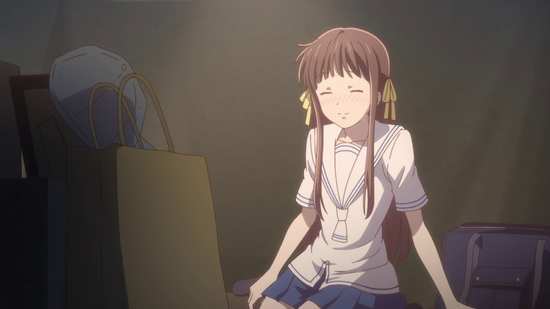
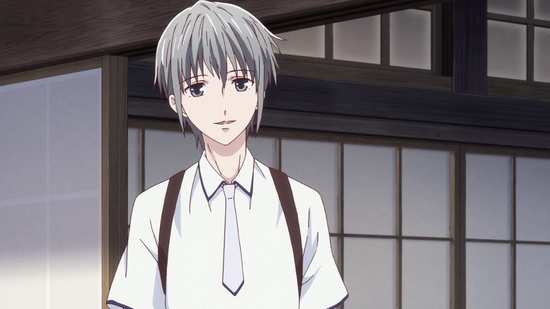
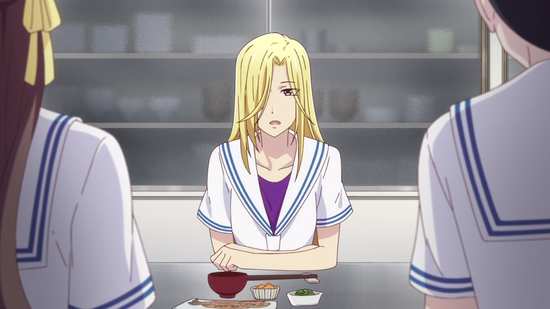
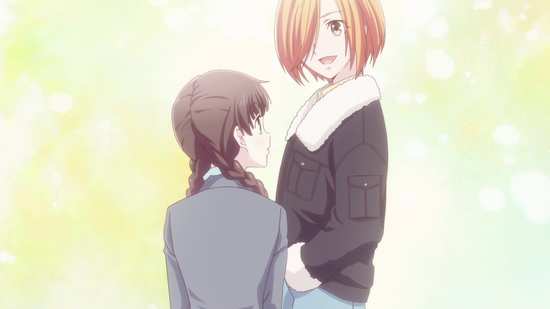
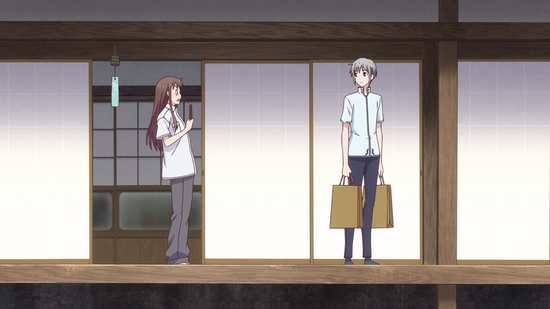
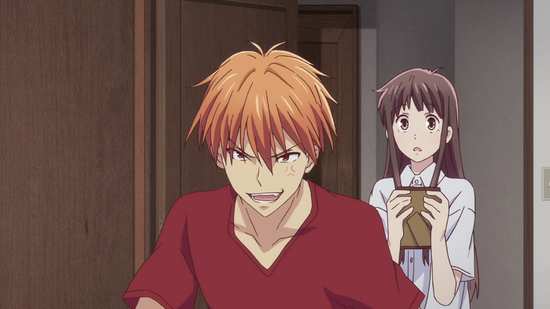
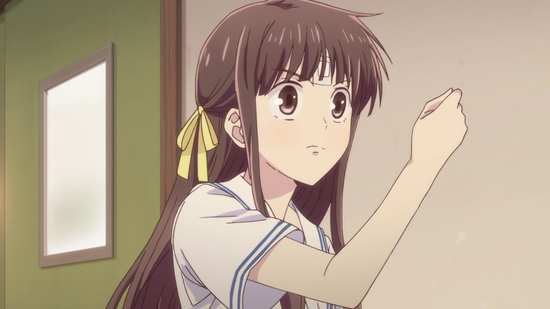
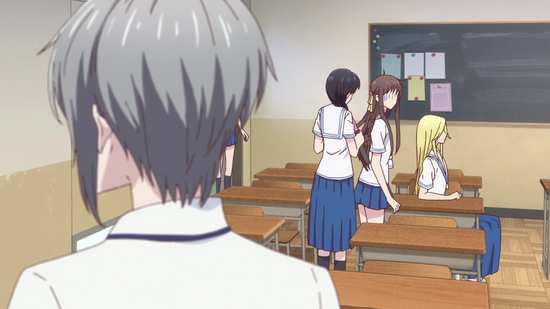
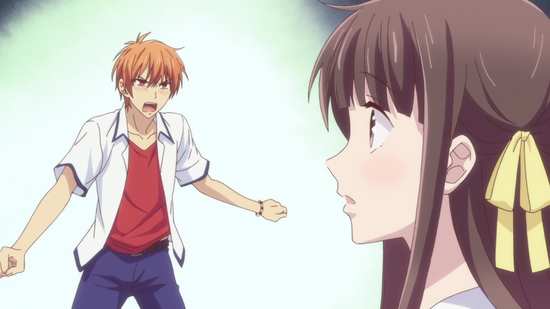
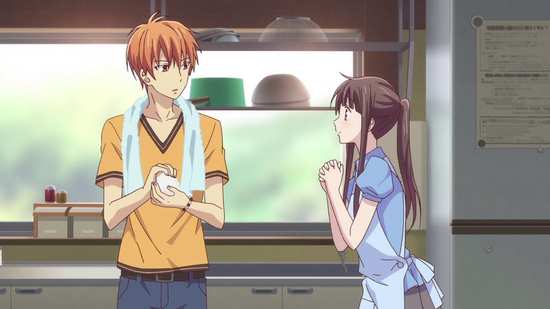
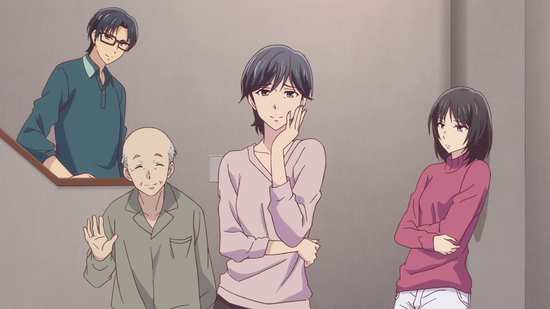
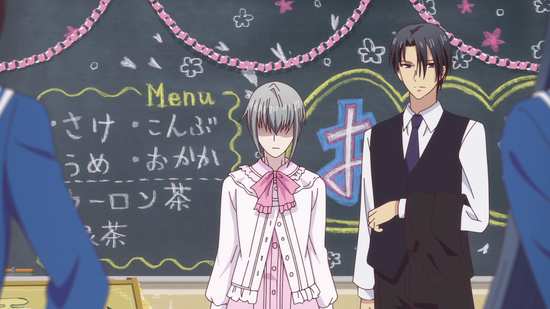
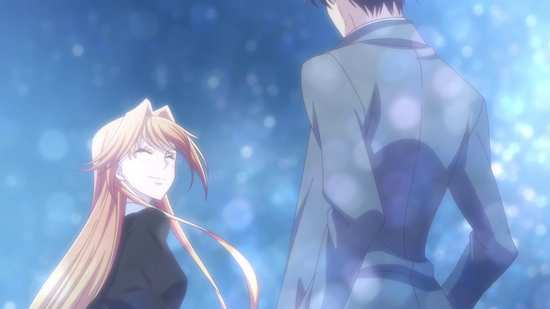
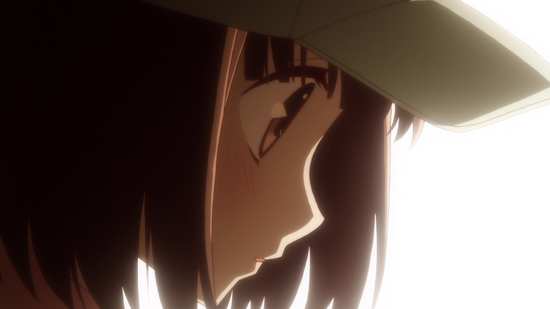
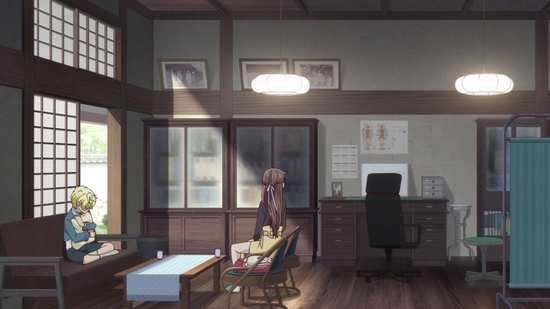
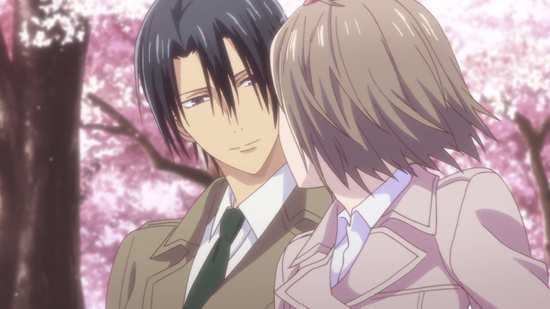
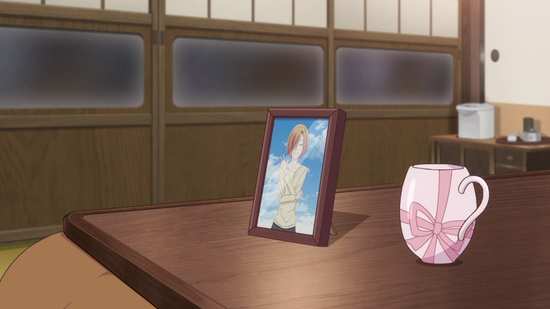
Your Opinions and Comments
Be the first to post a comment!